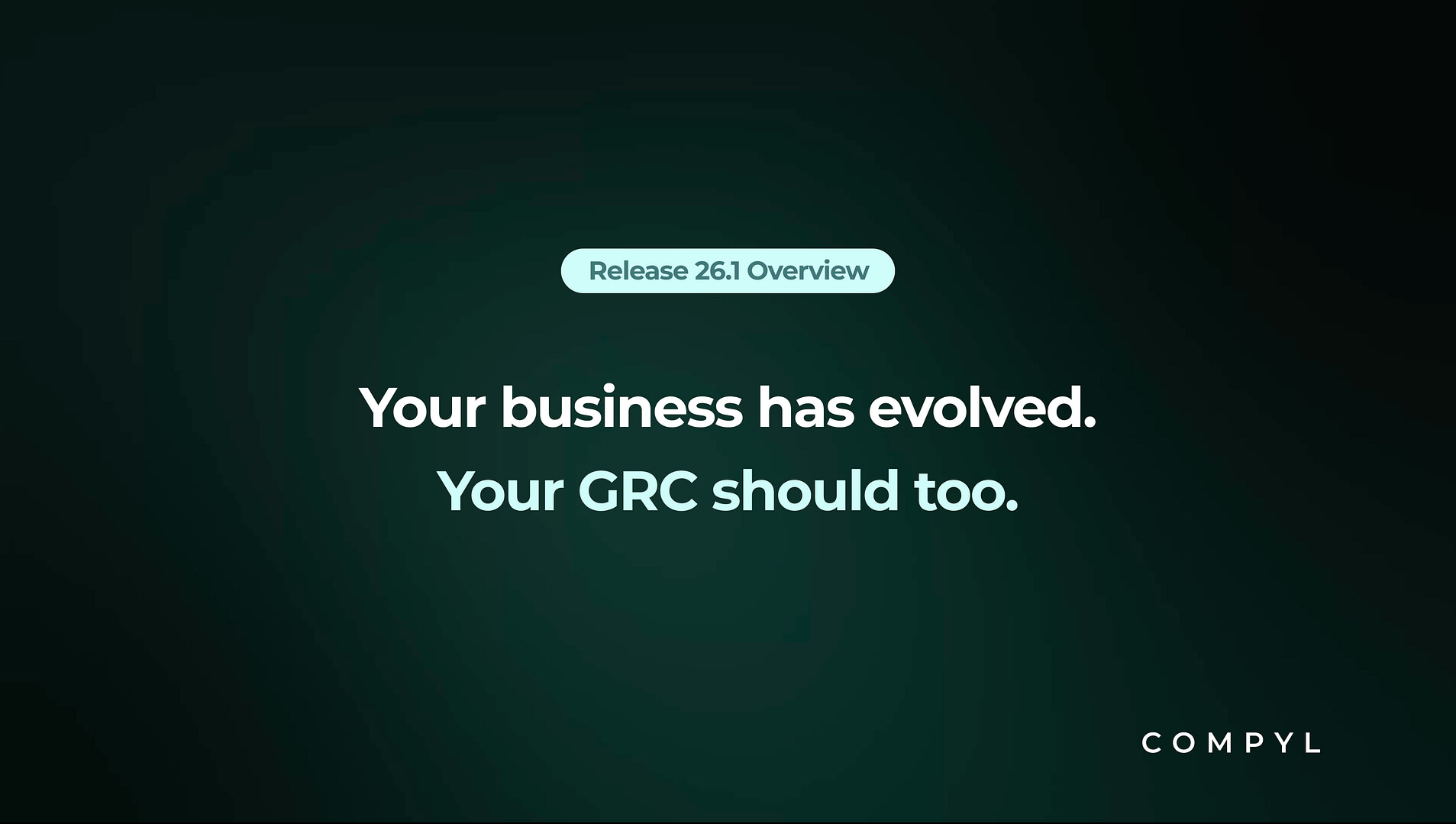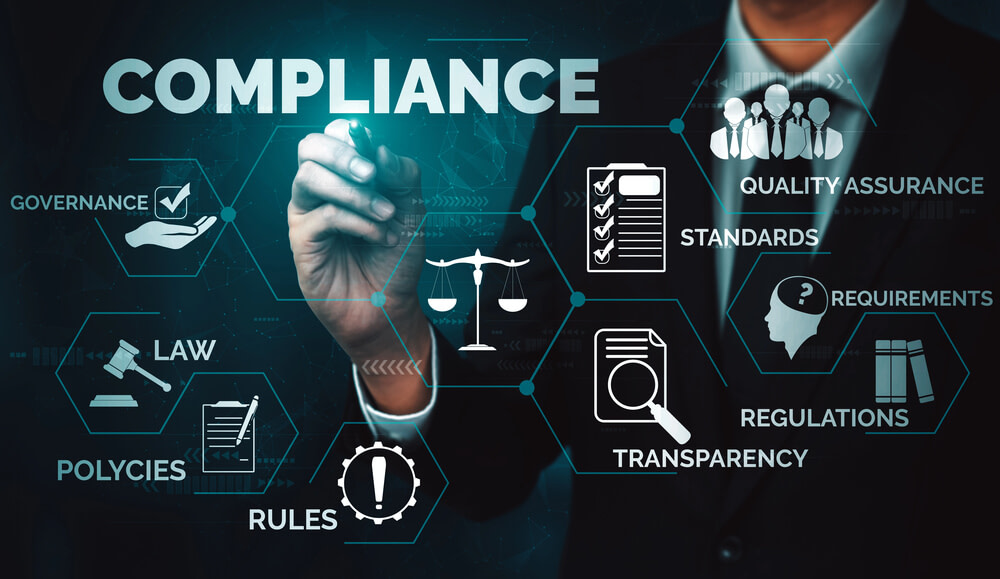In every industry, the need for compliance is a fact of life. Adhering to leading standards and regulations can boost business success, while running afoul of the law can bring significant monetary and reputational costs. The banking industry is no exception. But what is compliance in banking? Understanding this process is key to running a successful bank and avoiding hefty penalties.
What Compliance Means in Banking

Compliance in banking involves adhering to laws, regulations, and standards for financial operations. To remain compliant, banks must implement policies and procedures to prevent illegal activities like money laundering and fraud.
Banking compliance also covers consumer protection laws. Bankers are required to monitor and report suspicious activities, conduct thorough due diligence on clients, and maintain robust internal controls.
Key Laws and Regulations in Banking Compliance
Unlike other industries where the stakes are lower, banking deals with highly sensitive personal and financial data. This requires a more robust approach to compliance for bankers, lenders, fintech developers, investment firms, and other financial institutions.
The Bank Secrecy Act (BSA)
The Bank Secrecy Act, also known as the Currency and Foreign Transactions Reporting Act, was enacted in 1970 and is one of the cornerstone laws in compliance for bankers in the United States. Financial institutions must keep detailed records of cash transactions exceeding $10,000 and report any suspicious activities that could be criminal in nature.
Banks must also file Currency Transaction Reports (CTRs) and Suspicious Activity Reports (SARs) to the Financial Crimes Enforcement Network (FinCEN). BSA compliance plays a crucial role in combating money laundering and other financial crimes.
The Dodd-Frank Wall Street Reform and Consumer Protection Act

The Dodd-Frank Act, enacted in response to the 2008 financial crisis, introduced drastic reform to the US financial system. It established the Consumer Financial Protection Bureau (CFPB), which oversees consumer protection in the financial sector.
This act implemented stricter regulations on derivatives and created the Volcker Rule, restricting banks from engaging in proprietary trading and limiting their investments in hedge funds and private equity. The Dodd-Frank Act is designed to reduce systemic risk, increase transparency, and protect consumers from predatory lending practices.
The Gramm-Leach-Bliley Act (GLBA)
Passed in 1999, the GLBA deals with data privacy and protecting consumers’ financial information. This type of banking compliance requires lenders to explain their information-sharing practices to customers and to take necessary precautions to safeguard sensitive data.
The act’s Financial Privacy Rule governs the collection and disclosure of customer information. The Safeguards Rule mandates financial institutions to implement information security programs.
Anti-Money Laundering (AML) Regulations
AML regulations were created to prevent criminals from disguising illicit funds (“dirty money”) as legitimate income. These regulations require banks to implement systems and controls for detecting and reporting activities potentially tied to money laundering or terrorist financing.
An example of this type of compliance in banking is the requirement to perform customer due diligence. CDD involves verifying each customer’s identity and assessing the risk of illegal activities. Enhanced due diligence (EDD) is required for high-risk clients.
The Consequences of Non-Compliance for Banks
The penalties for non-compliance in banking can be severe. Monetary fines range from several thousand to several millions of dollars. Depending on the gravity of compliance violations, the government may even file criminal charges against offending banks. In the worst cases, institutions can lose their banking licenses and be shut down.
One infamous example of non-compliance in the banking industry is HSBC Holdings (HSBC). In 2012, they agreed to pay a $1.9 billion fine to US authorities for failing to implement adequate anti-money laundering controls. HSBC was accused of allowing drug cartels in Mexico to launder billions of dollars through its US operations.
In another shocking case, BNP Paribas, a French bank, was fined $8.9 billion in 2014 by US authorities for violating US sanctions. The bank admitted to processing billions of dollars in transactions for entities in Sudan, Iran, and Cuba, countries subject to US economic sanctions. The BNP Paribas situation highlighted the importance of adhering to sanctions regulations.
While cases like these are extreme examples of what happens when banks fail to comply with the law, they serve as a stark warning to other financial institutions. By adhering to all relevant compliance laws, banks can avoid falling from grace.
How Banks Can Ensure Compliance
Establishing a compliance framework for industry and government regulations is worth the time and effort it requires. The goal isn’t to check boxes on a periodic audit, but instead to achieve continuous compliance. Integrating compliance into your business operations can help you lower costs, improve outcomes, and protect your business. Not only do you avoid penalties, but you also strengthen your organization’s cybersecurity defenses and reputation.
Establish a Robust Compliance Program
If you haven’t already done so, now is the time to develop a strong governance, risk management, and compliance program. An effective framework must have clear policies, data-backed procedures, and easy-to-understand examples of implementation.
Why is this type of program effective for banking compliance? For one thing, it unifies your organization’s efforts. Instead of leaving it up to individual departments to decide how to meet regulatory requirements, you standardize processes and data management guidelines in every area of operations. This reduces the risk of human error, miscommunications, and duplicated or wasted compliance efforts.
Customize Your Banking Compliance Program
When it comes to compliance for bankers, there is a wide range of factors to consider for successful implementation. The ideal framework for one organization may not meet the financial products or organizational structure of another.
Any compliance program must be tailored to the specific regulatory environment in which your bank operates. You also need cybersecurity protections that are designed for your organization’s specific risks and vulnerabilities.
Build a Compliance Culture With Employee Training
Education is the foundation of compliance. By making your employees aware of necessary protocols, you can create a culture of compliance from the get-go, making adherence second nature to those within your institution.
Get stakeholder feedback on your program and look for opportunities to simplify procedures. You also need to set up a reporting system so managers and employees can bring compliance issues to light without fearing reprisals from direct superiors.
Help employees learn what banking compliance involves by explaining processes, encouraging questions, providing answers, and addressing concerns. Instead of telling employees the rules, it’s more productive to show them how to meet requirements in their day-to-day activities.
Perform Regular Audits and Monitoring
Conduct regular compliance monitoring and auditing to identify potential compliance gaps. This step can be the difference between costly penalties and time-saving benefits.
It’s especially vital to implement monitoring systems. Compliance monitoring platforms can automatically log transactions, flag suspicious employee or user behavior, and alert admins to any unusual patterns that may indicate non-compliance with AML sanctions or potential data breaches.
Monitoring also provides greater insight into the organization’s processes and systems. This allows for more accurate risk assessments and more effective compliance solutions.
Your Organization Determines What Compliance in Banking Is

In the financial industry, there’s no single “right” framework for compliance. Effective policies depend on your operations, workforce, clients, markets, and regulatory scope. Global financial institutions have to meet different regulations from those of lenders primarily based in the United States.
Navigating banking compliance can be complex, but it doesn’t have to be. Fortunately, you don’t have to tackle compliance initiatives alone. Compyl makes it easy to monitor compliance, stay on target with key regulations, and integrate industry best practices into your operations. Contact us to see how simple compliance in banking can be and how to streamline your company’s workflow.



